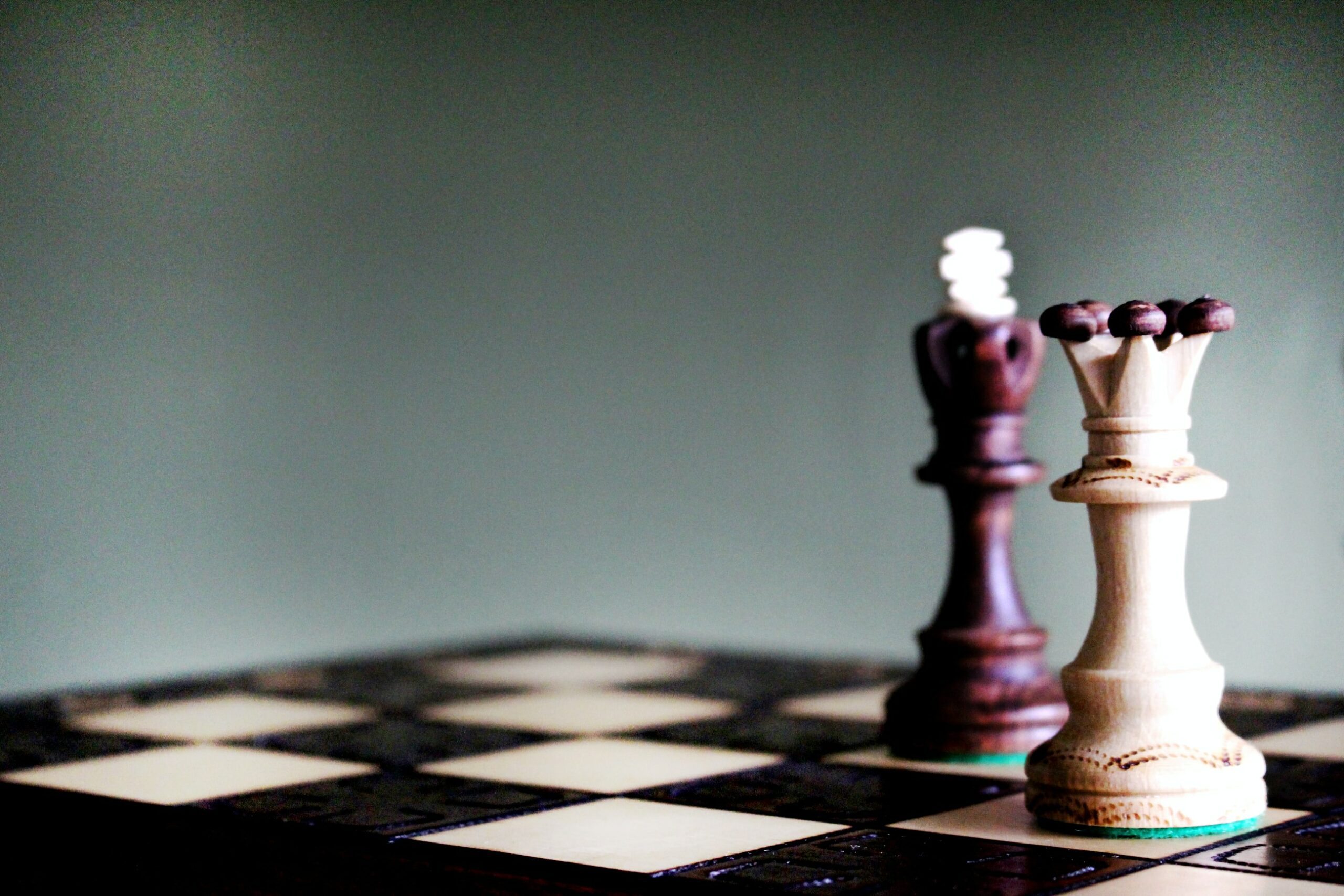
What Do I Need to Do to Stop Watching Porn?
If you want to break free from a struggle with pornography, you may be wondering:
What do I need to do to stop watching porn?
What do I need to give up? Is there some sort of trick?
Different “experts” may have different strategies. When I was first beginning my journey of freedom, the “course” I was using called for “radical amputation” of any sort of electronic device. No TV. No smartphone.
This, the author believed, was the equivalent of “gouging out your right eye” which is what Jesus says in Matthew 5:29
If your right eye causes you to sin, tear it out and throw it away. For it is better that you lose one of your members than that your whole body be thrown into hell. {ESV}
I recently received an email from another author who shared a list of ways to “pluck out your right eye.” His list included filling in your backyard swimming pool with concrete and using “the recovered space to host Bible studies” and smashing your smartphone, burning the pieces, and then sprinkling the ashes across town.
It’s no wonder we can feel overwhelmed on our road to freedom, especially when what is presented as “necessary” steps may seem impossible.
If you’re a teenage girl and the swimming pool next door is a source of struggle, you don’t necessarily have the option to fill it with concrete. In fact, please don’t.
I feel like such calls for “radical” and, honestly, extreme action can lead to a sense of helplessness and even violence. More than that, these actions themselves can be viewed as some sort of “key” for freedom. If getting rid of your cell phone wasn’t good enough, then maybe what you need to do is smash it, burn it, and sprinkle the ashes. If that doesn’t work, find something more extreme and dramatic.
Eventually, we forget the why and start worshipping the what.
In March 2021, a young man who claimed a history of sexual addiction shot and killed several people at spas in Atlanta, Georgia. He told investigators that he viewed the spas as a “temptation” that he needed to “eliminate.” He shared he felt helpless and suicidal leading up to the event because of his struggle.
Yes, his case is extreme, but it highlights some of the weakness of the “radical amputation” approach.
When we’re faced with a list of things we are told we need to burn, smash, or fill in with concrete in order to “honor God” and “walk in freedom” we are misunderstanding some very important elements of our struggle.
Some of you come to me looking for the “female” version of that list. I don’t have one. Here’s why:
Pornography doesn’t need a smartphone to get to you. You don’t need a smartphone to get to it. You don’t need a swimming pool, or cable, or internet.
I could lock you in a room with no outside contact, no access to anything at all and you could still indulge in pornography.
You likely know this because you’ve probably experienced unwanted memory recall at the most inopportune times. Pornography can feel like a song that gets stuck in your head.
So imagine, if you will, smashing your smartphone into a zillion pieces, filling in your pool with concrete, taking a baseball bat to your TV (looking at you Fireproof) and burning all your romance novels, only to have pornography come waltzing into your mind out of seemingly nowhere. How unbelievably frustrating, infuriating, perhaps even defeating.
I have been there. The second college I attended had zero access to pornography content and cell phones weren’t really a thing, much less smart phones. It was a Bible college, so I literally spent every day studying the Bible. We had a mandated devotional time every morning. I was doing all the things. And even there, I struggled. In the middle of devotions, BAM! pornography. Close my eyes to pray– pornography. In fact, I stopped closing my eyes to pray for a while because of it. Turns out prayers with your eyes open still count.
You’re probably asking, Then what do I have to do to get rid of pornography?
We’re always wanting something to do. We need action steps. Tell me the formula to make this stop.
Every week, I get emails from women asking that question. What do I need to do to get this to stop?
We want the practical (or sometimes borderline impractical) steps to take that will guarantee a victory.
Here’s the thing, at the root of all of this, there’s a heart issue. Even in Matthew, when Jesus tells men to gouge out their eyes, it’s a personal heart issue. You’ll notice it’s not the scantily clad woman causing the man to lust. It’s the man’s own eye. His eye is causing him to lust.
In James, we read that the source of our struggles is our own desires. In James 1:14-15, it says:
“But each person is tempted when he is lured and enticed by his own desire. Then desire when it has conceived gives birth to sin, and sin when it is fully grown brings forth death.” {ESV- emphasis added}
So often we are looking for external things we can do, but you can’t expect freedom from pornography without doing some internal work.
This is why I don’t promote radical amputation but instead the idea of boundaries and triggers.
(PS: I’m putting together a free resource and course on this concept. If you’re signed up for my newsletter, you’ll be the first to know when it’s ready! Sign up here!)
The lifecycle of temptation and sin is laid out in James. We are lured away by our own desire. That desire then conceives, gives birth to sin, sin grows up and results in death.
I have had two biological children. This process of conception, birth, and growth takes time.
We don’t often realize that our sin cycle takes time because so much of it is second nature. We’re used to thinking a certain way. We have certain habits and patterns that lead a certain way, and we don’t feel like we’re making a choice until the very end. So much “radical amputation” deals with the final choice in a long sequence of choices.
Let me use a personal, non-sexual weakness to help illustrate this.
French fries.
French fries are my weakness. If a restaurant has them, I feel practically compelled to order them. It’s like I’m subconsciously on some quest to find the best fries in the world. That combination of crunchy on the outside, soft in the middle, piping hot and salty. So good.
Let’s say, for sake of argument here, it is wrong for me to eat french fries. Perhaps I am trying to change my eating habits.
It is easy to say, “Well, then just don’t order the french fries.” Duh, Jessica.
Sound familiar?
But what about the series of choices that has led me to this? Before I’m even sitting in a restaurant, looking at a menu, trying to convince myself to order a salad, I made choices. I decided to go out. I chose the restaurant. I chose who would come with me. I got in the car and drove to the restaurant. I picked a parking spot. I walked in. I waited to be seated. I picked the side of the booth. I picked my drink.
Then, I choose my food. Then, I eat it.
Each of those decisions led me there. At any point in that sequence of events, I can choose differently. Some days I absolutely can sit in that restaurant and order a salad (and stare longingly at someone else’s french fries), but there are other times I know better than to even leave the house because if I do, I will be diving face first into a double order.
Self-control is not going out of the house anyway and forcing myself to order a salad. Self-control means recognizing which day it is and knowing how to act accordingly.
Self-control means knowing if I’m relying on a boundary or if I’m reacting to a trigger.
Boundaries, like a fence, help keep me from going places where I don’t want to go. Triggers are what makes me want to go in the first place. Wisdom is knowing both and knowing which is in control of a situation.
Often our steps of smashing smart phones and burning novels are not from a place of self-control but a place of feeling out of control. We feel wild and helpless, and this is the one thing that maybe we can do that might set us free. But you cannot amputate your way out of pornography.
Can there be an appropriate time for steps like that? Absolutely. Can they be helpful? Yes. I returned a brand new Kindle I had been gifted because I knew, for me, at that time, it was just asking for trouble. So, yes, there is a time to “amputate.”
Ultimately, if you want to find victory over pornography, the key is not to destroy all bridges leading there (because there are bridges currently hardwired into your body and mind). The key is to develop self-control. When we talk about freedom, that’s part of the equation that many seem to miss. We approach this as if pornography is some external force we’re powerless against.
Freedom is not “pornography has no way to get to me.” Freedom is “I don’t need it anymore. It has no control over me.” And how do we get there?
But the Holy Spirit produces this kind of fruit in our lives: love, joy, peace, patience, kindness, goodness, faithfulness, gentleness, and self-control. There is no law against these things! Galatians 5:22-23 (NLT)
Bashing our computer doesn’t do it. Throwing romance novels in the lake doesn’t do it. The Holy Spirit does it. Which means we need to be connected to and in tune with and walking in the Spirit. That’s where our power in this journey comes from. The power you need to grow, to break free, and to stay free doesn’t come from your own ability to outsmart pornography and temptation. Fight this battle that way and you will be fighting for the rest of your life.
Instead, aim to do the work of letting God do the internal work. It’s not comfortable. It’s not easy. Throwing your smart phone in the ocean might be an easier step, actually. But that doesn’t get at the root of the issue, and if you want freedom, you have to be willing to get at the roots. We cannot change the fruit without being willing to address the root.




